
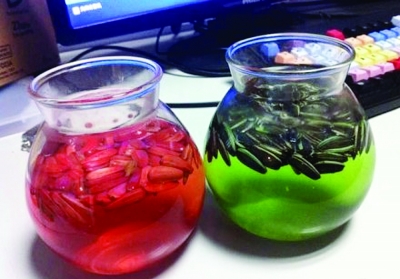 |
| After green tea and brown tea melon seeds are soaked in it for half an hour, water changing to green and red. (File Photo) |
The results of an investigation of green tea-flavored and brown tea-flavored melon seeds by Dragon TV reporters in Shanghai and Anhui and Jiangsu provinces have triggered a new round of public concern over food safety.
The production of melon seeds using banned food dye additives is quite common in China, Yangtse Evening Post reports.
The test by Dragon TV showed that two bottles of water changed to green and red, respectively, after green tea and brown tea melon seeds were soaked in them, indicating that they had been manufactured using food dye additives.
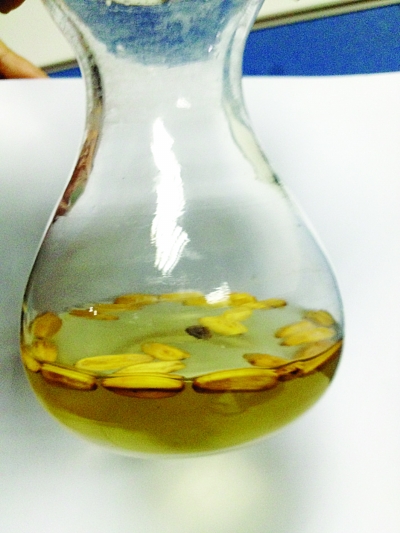






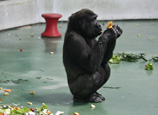
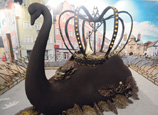

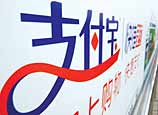






 Beauties at Beijing Film Academy enrollment site
Beauties at Beijing Film Academy enrollment site


![]()
